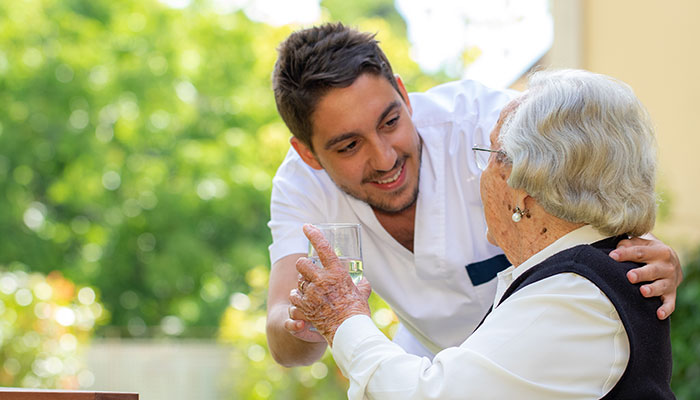Caregiving Tips
Senior move managers
Does your loved one need to downsize? Move? Does the prospect seem overwhelming? Perhaps not just physically, but emotionally too? Enter the senior move manager: Part mover, part interior decorator, part compassionate friend. These professionals take a holistic approach. They handle the physical logistics. They are also skilled at assisting older adults with the emotional…
Read MoreFrontotemporal dementia (FTD)
Frontotemporal dementia (FTD) is an umbrella term for a cluster of conditions that makes up about 10 percent of dementia cases. It’s the most common form when dementia occurs before age 65. What sets FTD apart is a sudden and dramatic change. Often in a person’s behavior. But speech and/or movement abilities can be affected.…
Read MoreCaring as a stepfamily
The majority of us feel obliged to help an ailing parent (77 percent, according to Pew Research Center). But if your parent is okay and your stepparent is ill, then what? Should you help with caregiving? (Pew data indicate 56 percent of us feel obliged.) What if your parent also has health challenges and providing…
Read MoreManaging pain with music
Here’s a prescription for pain relief: the sound of music. Pain is very real. It is also a perception. How strongly we feel pain at any given time depends a good deal on our thoughts and mood. Music has a profound influence on both. Indeed, research shows that using music as therapy can reduce the…
Read MoreWhen you feel more resentment than love
If you are caring for a parent or parents who abused or neglected you in childhood, your situation is especially challenging. You may feel on an emotional tightrope, trying to keep your balance, with many conflicting feelings. For example, Research indicates that you are put at much greater risk of depression by these stressors than…
Read MoreLow-vision bathroom
The bathroom is often the most challenging (and least safe) room in the house for someone who is visually impaired: Poor lighting, or lighting that’s too bright. Lots of white-on-white furnishings and shiny fixtures. Hard-to-read settings on faucets. Tiny caps and tamperproof closures on personal care products and medications. And many small items for specialized…
Read MoreHow is your relative’s “social health”?
The U.S. Surgeon General reports we have a loneliness epidemic. Like smoking and obesity, social isolation creates a greater risk for poor health. It’s been associated with a 48 percent increase in “premature death” (a death where a change in lifestyle could have resulted in a longer life). Our social health affects our physical health.…
Read MoreAdjusting to memory care
Once your loved one is in their new home, the two of you will have a lot of adjusting to do. Like any big change, it takes time to find a new internal balance, a “new normal.” One to three months is about average. For you. Expect a range of emotions: Sadness, guilt, doubt, and…
Read MoreWhen ice cream is better than salad
Whether it’s a bowl of soup or a bag of groceries, providing food is how we show our love. And when a relative has a serious illness, it’s natural to want them to eat a healthy diet. Many chronic conditions respond well to specialized diets. Diabetes and heart disease, for instance, can be managed very…
Read MoreWhat is “healthy selfishness”?
As a rule, family caregivers are generous. They tend to be empathetic and to want to help. But it is possible to be too generous, with a tendency to sacrifice one’s own needs for the benefit of others. Sound familiar? This is called “pathologic altruism.” People who feel compelled to give despite risks to themselves…
Read More








